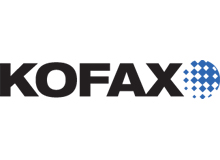
by Fortress & Castle Ltd | Jul 17, 2015 | Article
Speedy access to critical information separates the winners from the losers in today’s information economy. And just as everyone organises their documents in some way or another – even if it’s a ‘home made’ naming convention of always including the client name or a keyword – then, everyone who is not using document management software spends far too much time looking for “lost” documents or trying to work out which is the most recent version.
We would like to think that DM has finally gained full acceptance in the business world; but the truth is that some businesses still remain stubbornly unconvinced despite the facts and figures that support the business case.
Why Wouldn’t You?
According to Deutsche Bank and Gartner research, no less than 95% of the 30 billion invoices processed across Europe in the year 2010 were still done so in a way that involved manual data entry. Think about that for a minute – that’s over 28 billion invoices still being moved around from person to person, desk to desk, sometimes with as many as 10 steps to complete the whole process. The truth here is that manual processing can push the cost of processing that invoice by a factor of 20 over doing it electronically. That equates to £80,000 for 20,000 invoices at £4 each (done manually) versus the much lower £4,000 if they were done electronically (so at 20p each). And 20,000 invoices isn’t really a lot if you are a multinational.
Another statistic has it that the average office worker in the UK uses 15,000 sheets of paper every year with a cost implication of approximately £170 per person. At roughly 10 million UK office workers, that amounts to nearly £2 billion pounds being spent on possibly unnecessary paper.
A 2012 IDC report (‘The High Cost of Not Finding Information’) found that information workers spent up to 20% of their time filing and searching through paper documents. On top of that, they wasted over 10 hours a week searching for, but not finding, documents, recreating lost documents and other time-consuming tasks. IDC has gone so far as to cost out three scenarios – Time Wasted Search, Cost of Reworking Information and Opportunity Costs To the Enterprise – that can help companies estimate the cost of not finding information and the productivity gains that can be achieved when they do. Using these three scenarios, IDC estimated that an enterprise employing 1,000 knowledge workers wastes at least $2.5 to $3.5 million per year searching for nonexistent information, failing to find existing information, or recreating information that can’t be found. The opportunity cost to the enterprise is even greater, with potential additional revenue exceeding $15 million annually.
Plans, ideas, and thought processes have to be reinvented and recreated because an original document cannot be located and retrieved or – as sometimes happens when people retire or move on – other people are unaware of its existence. These figures, and many more like them, can all be attributed to the problems inherent in hardcopy document management – problems that have been known about for a long time.
This is something that should concern everyone in business, as despite all the cheerful headlines about a recovering UK economy, most businesses are still not increasing their spending – which means that money spent carelessly like this if there really is no need is not really on.
‘Must-Have’ List
There is no room, then, for complacency. Until DM software is on everybody’s ‘must-have’ list, there is still work to be done. The DM market is still a very healthy one and there is great scope for selling more of the sector’s wares. But unless we start working with customers – new and old, frankly – on the need to get the efficiency beyond the Finance office to the rest of the office, making the internal handling of the payment cycle a much slicker process and close out the situation where invoices can spend three quarters of their time in a company doing nothing, then we don’t have time to relax.
Source: Document Manager
Why not consider making the transition from hard copy to electronic storage of documents, and let our intelligent document management solution take care of your important data.
View our explainer video here…
https://www.youtube.com/watch?v=oBjh5Y9-zAA

by Fortress & Castle Ltd | Jun 10, 2015 | News
Kofax CEO Reynolds Bish to be president of Lexmark’s Enterprise Software division
Lexmark has acquired Kofax in a cash transaction for $11.00 per share, for a total enterprise value of approximately $1 billion. This acquisition will nearly double the size of Lexmark’s Enterprise Software annualised revenue to approximately $700 million. Lexmark also announced that Scott Coons, president of Lexmark’s Enterprise Software, has decided to retire, effective at the end of July 2015. Coons has successfully led Lexmark’s software division since the company acquired Perceptive Software in 2010. During Coons’ tenure, Lexmark’s Enterprise Software expanded from its enterprise content management software roots into process, capture and search technologies, and significantly strengthened the company’s industry-focused solutions. Coons helped expand the Enterprise Software team’s international footprint through organic sales investment and acquisitions. Coons will assist in the leadership transition until his retirement date.
Effective immediately, Reynolds C. Bish, CEO of Kofax, succeeds Coons as president of Lexmark’s Enterprise Software. Bish will also be a Lexmark vice president and report directly to Paul Rooke, Lexmark chairman and chief executive officer. Bish has been active in enterprise software markets for more than 20 years. He has successfully led Kofax since 2007. Prior to Kofax, Bish co-founded Captiva Software Corporation and served as its president and chief executive officer from 1989 until its acquisition in 2005.
“Scott’s career in enterprise software has been truly extraordinary. He successfully led Perceptive Software from a small startup to one of Kansas City’s hottest companies and one of the industry’s leading enterprise content software providers. Our acquisition of Perceptive Software truly changed Lexmark, helping to grow and position us as a leader in managing unstructured print and digital information,” said Paul Rooke, Lexmark chairman and chief executive officer. “Scott’s thoughtful and insightful leadership has been key throughout Lexmark’s Enterprise Software evolution. His passion for the technology, and for attracting, developing and retaining a deep and diverse group of talented employees, will be the hallmarks of his career. We wish Scott the best of luck in his retirement.”
“We have tremendous confidence in the future of our Enterprise Software business under Reynolds – a testament to his proven leadership abilities and career success. His considerable experience in building and operating global businesses is a harbinger of future growth and expansion for Lexmark’s Enterprise Software,” added Rooke.
Source: Document Manager
Why not consider making the transition from hard copy to electronic storage of documents, and let our intelligent document management solution take care of your important data.
View our explainer video here…
https://www.youtube.com/watch?v=oBjh5Y9-zAA

by Fortress & Castle Ltd | May 15, 2015 | Article
The mailroom is responsible for managing your most valuable documents and sensitive information. Outsourced mailroom services can address a range of operational issues.
Using high-volume production scanners and a combination of manual data entry, automated form classification and intelligent data capture systems, we transform your paper documents into digital information delivered quickly and efficiently to the right people at the right time. Our digital mailroom solutions incorporate time and cost-saving improvements for mail workflows, and all associated business processes.
Working with you towards a solution
Our consultants work with you to help you understand your current service and identify areas for improvement to efficiency and effectiveness. We deliver financial value through precise process efficiency and technical innovation. By providing a professionally managed digital mailroom service, with clearly defined SLAs, we help you improve the service you offer your clients. We introduce transparency and control through streamlined processes and detailed management information.
Significant savings and improvements
– Eliminate costly mailroom overheads
– Reduced paper storage costs
– Eliminate delays in receiving important mail items
– Save time by receiving electronic post instantly
– No need for costly equipment, maintenance and consumables
– Improved compliance and visibility
– An auditable process
The effective management of your mail can impact on the success of your business. Contact Us today to find out how we can help your organisation.
https://www.youtube.com/watch?v=oBjh5Y9-zAA


